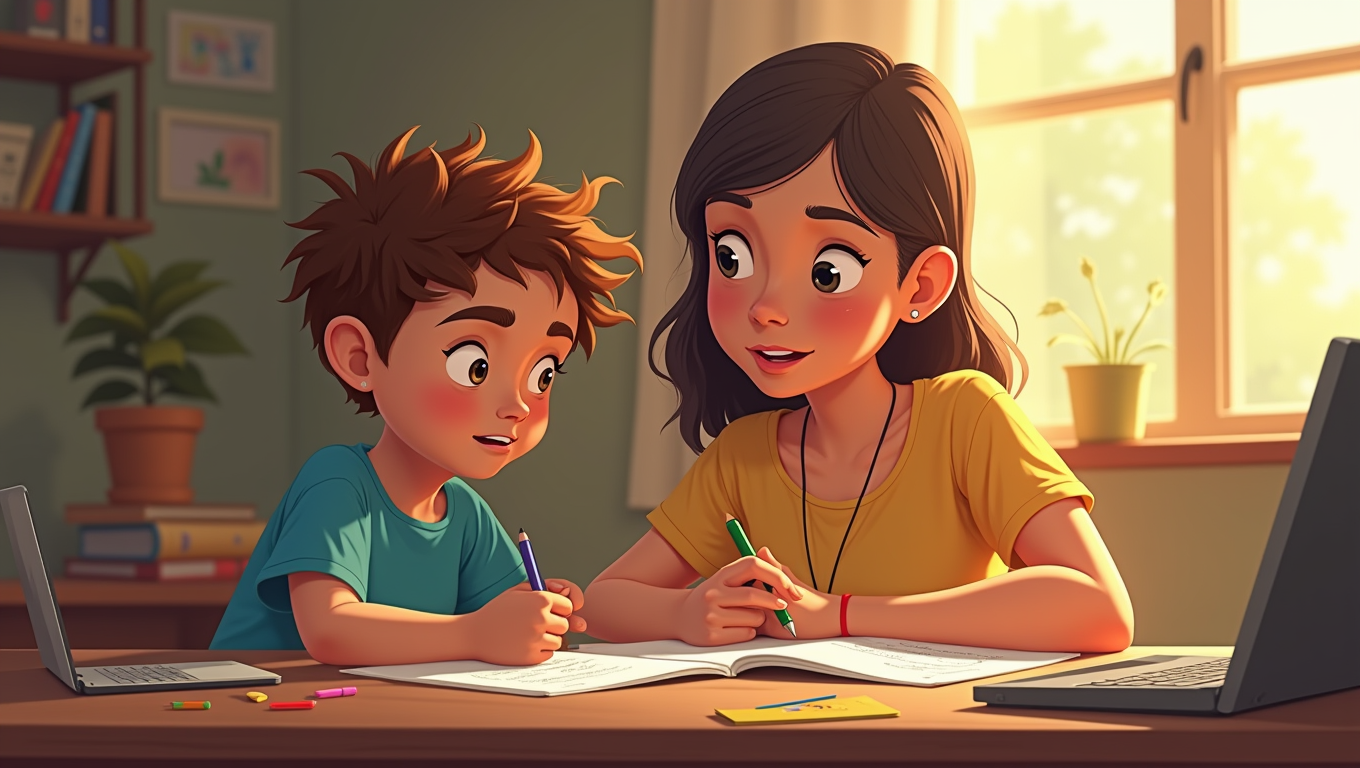Many questions and concern start coming to mind when parents come to know that their child is having difficulty in studies or has a learning disability. There is no need to worry. You can make a big difference in your child with the right information, patience and love.
This article will help you understand how you can help your child so that he can move forward with confidence.
1. First understand what the problem is

Every child has a different learning disability. Some children have difficulty in reading , some in writing and some in mathematics or concentration.
The first step is to get the correct diagnosis. For this, you can get a test done by the special educator of the school or an expert.
This will help you understand in which area more help is needed.
Signs of learning difficulties:
Below are some simple signs that can indicate that a child is having learning difficulties:
- Difficulty reading, writing or counting
- Difficulty remembering things or understanding instructions
- Difficulty keeping things organized and completing tasks on time
- Difficulty talking to others or making friends
- Lack of concentration or getting distracted easily
- Studying well at times and very poorly at other times
2. Create a calm and fixed study environment at home

Such children are unable to concentrate in noise or chaos. Create a quiet corner at home where the child can study without any interruption.
Get homework done at a fixed time.
Give breaks in between.
Keep all the necessary material nearby.
3. Adopt different ways of learning
Not every child learns in the same way. Some children understand things by seeing, some by hearing and some by touching or doing things.
You can adopt multi-task learning:
Writing words while speaking.
Using colourful charts and flashcards.
Teaching through games etc..
Study tips to guide students during exams….Read Here
4. Increase their confidence
Children struggling with learning disabilities often start doubting themselves. They feel that they are behind others. In such a situation, the support of parent is very important.
Appreciate every small effort.
Say things like:
“You have worked very hard”
“It is okay to make mistakes, we all learn”
5. Talk to teachers regularly
Coordination between school and home is important. Keep talking to teachers, know what is working in school and what is not. Your information can also be helpful for teachers.
Ask:
In what areas is the child progressing?
What can be done at home for practice?
6. Keep a balance in routine
Proper sleep, good food, fixed time for study and time for play – all these together make the child mentally and physically strong.
Put the child to sleep on time.
Give time to play and rest in between.
Limit use of mobile/screen time.
7. Use technology wisely
Nowadays there are many digital tools and apps that can help in learning.
Such as:
Text-to-speech apps
Audiobooks
Interactive games of math and language
Use them if needed.
8. Seek expert help if needed
If you feel that the child needs more in-depth help, contact a special educator, tutor or therapist. These professionals can guide the child according to his needs.
Conclusion
Your child is unique no matter how he or she learns. A learning disability is not a weakness, it is a different way of thinking and understanding.
With love, patience and the right support, your child can become confident and successful.
ALSO READ – How To Build Confidence In Children !


This is a great resource. Thank you for sharing.